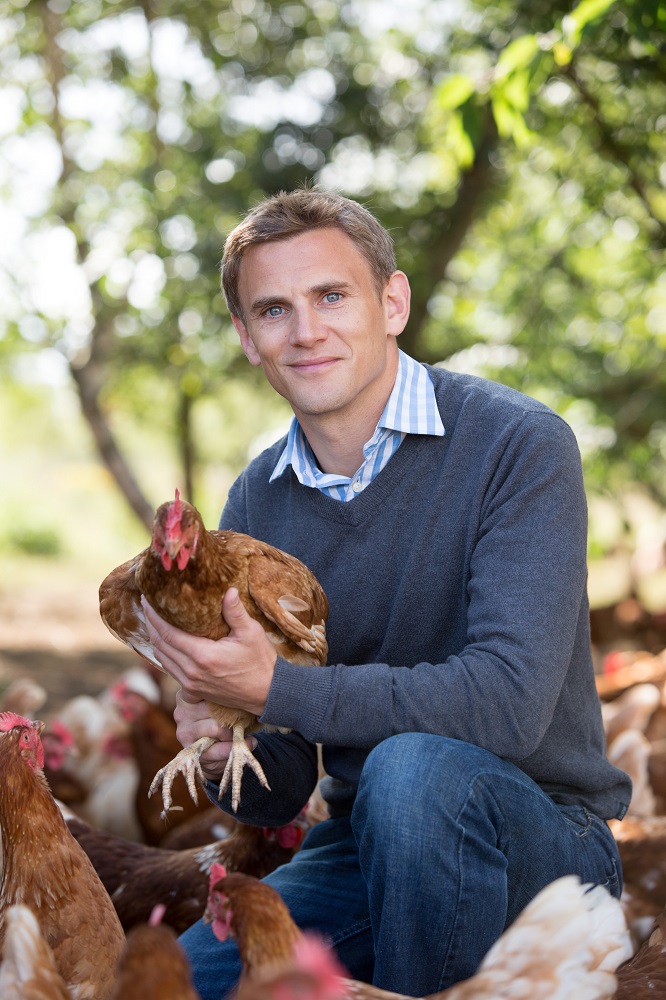James Potters Eggs, a leading Yorkshire free-range egg producer, has warned the government’s recent announcement not to include tariffs on imported egg and egg products will potentially open the floodgates to imported caged eggs, banned in the UK since 2012 on animal welfare grounds.
Adrian Potter, director of James Potters Eggs, said: “We thought eggs were on the list as a protected product, so it came as quite a surprise, and shock, when it was announced a few days ago that they weren’t.”
Family-run James Potter Eggs helped pioneer free range egg production in the 1970s. Founded by Sue Potter, her sons Adrian and James have helped grow her initial 80 hens to over 300,000 free-range hens, employing over 60 people across six farms.
Adrian Potter said: “At the moment, when we do leave Europe there’s nothing to stop shell eggs coming in that could be from a battery cage or of a lower quality. It’s a concern, but the biggest concern is the processed egg and powdered egg products that are much easier and cheaper to transport and import – that’s going to massively undercut the market.”
“There’s a huge market for processed eggs and powdered egg as they are used in lots of different products, ranging from ready meals to cakes. Food labelling usually only states ‘egg’ as the ingredient with no mention of the welfare standards or country of origin, making it very difficult for consumers to make an informed choice.”
“The egg industry does not receive any subsidies and we are very proud that we have some of the highest welfare standards in the world and under the Lion scheme we also have the safest eggs. The government has shown their commitment to sustainability under the new Agricultural Bill that requires the industry to meet even higher environmental standards. Whilst these are all positive and welcomed by the industry and consumers alike, it does come at a cost.”
“Whilst we are not asking for an unfair advantage, tariffs are a useful mechanism that recognises the benefits to health, welfare and environment, whilst not disadvantaging the industry at the same time.”
Animal welfare agencies and the British Egg Industry Council (BEIC) are lobbying ministers to seek assurances that egg products from non-EU countries, where animal welfare standards are significantly lower, will not hit the UK market.
The BEIC has already raised concerns around the increased health risks of imported egg products, including the risk of salmonella, alongside ethical issues around animal welfare and the impact on the livelihood of British farmers.
Potter added: “Feed is a lot cheaper in countries that are big grain producers like North America, and we can’t compete with that. In Britain, we’ve spent years getting to an amazing standard of egg production, with legislation around welfare, safety and the environment.
“It’s crucial for the future of our farmers that tariffs are in place for a fair playing field or at the very least better food labelling. As things stand, it could be a massive step backwards for all of us who have campaigned, invested and worked hard to get to the amazing quality of eggs we have now in Britain, notwithstanding all the benefits around animal welfare and the environment. To not protect the British egg industry just doesn’t make sense.”


